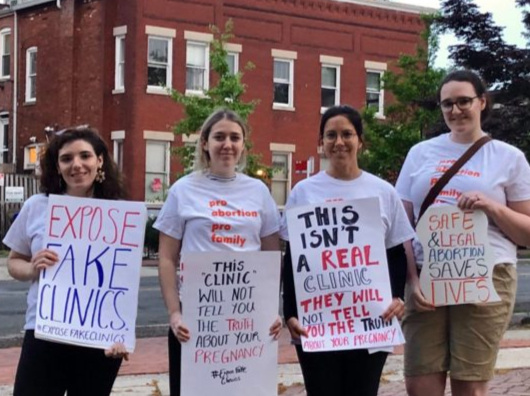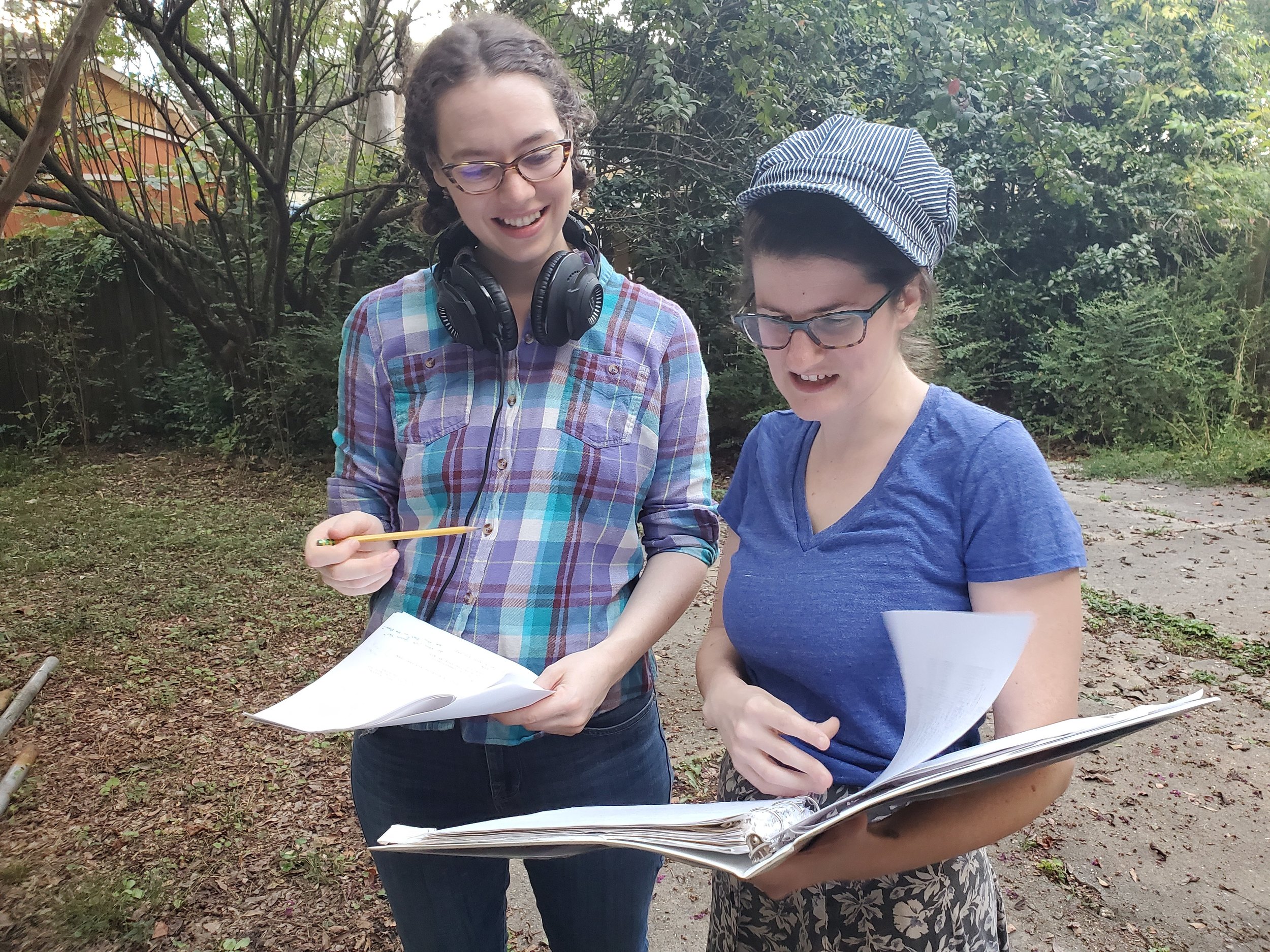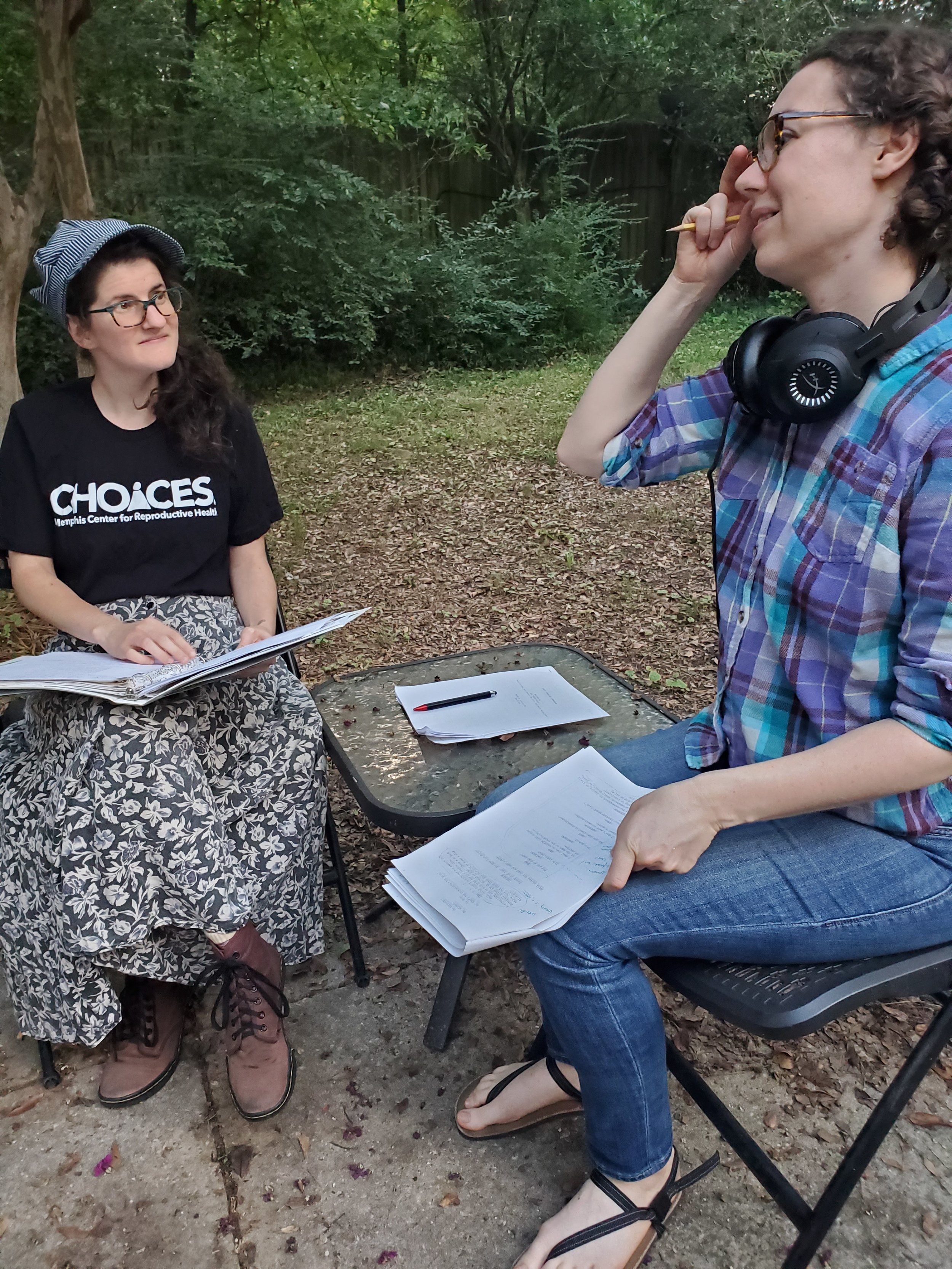This is a picture of me in the moment I realized my friend Martha had orchestrated a surprise birthday party when I turned 36. The feeling of electric delight from the shock was uncontainable.
I still marvel that everyone involved had been able to keep the party a secret.
But here’s the thing. I had my own secret, and it wasn’t delightful. Soon enough, my constant companion named Shame would lean in and whisper into my ear:
“You had two abortions. If they knew, they wouldn’t have come to the party. They wouldn’t even want to be near you.”
Shame has harassed me since the age of 13, when I became pregnant through unloving sex that I barely comprehended. My parents arranged an abortion and told me I must never talk about it to anyone. In the years after, I noticed that the only people talking about abortion were people who said it is murder, which hurt me deeply.
At 19, I needed another abortion during an emotionally abusive relationship with a man who did not want to be a father. I was horrified and disgusted with myself. One abortion was bad enough, Shame said. What kind of monster has two?
I was certain that no one else had ever had two abortions. Why would I think otherwise? You are a very bad person, Shame said. No one else on earth is as bad as you.
Recently I learned that 45 percent of US abortion patients have had one or more prior abortions. Many of them here and abroad live in silence and isolation, feeling an extra level of shame.
I started a Twitter account called 2+ Abortions @AboboBravado in hopes of helping them understand that they are not alone and they are not bad. This is the story of the long road leading to this project of love.
Not being forced into childbirth allowed me to live a very good life that has included a good education, a fulfilling career, a wonderful husband, two amazing sons, and two precious grandchildren.
But throughout all the years, I never heard anyone say anything compassionate about people who end a pregnancy. In the silence, shame flourished in my mind and etched itself into my bones.
I broke my silence at age 40 when I confided in one friend, which set me on a path of ‘coming out’ that is still in progress.
In 2013, at the age of 54, I found the courage to tell my sons about my two abortions. I had feared all my life that they would no longer love me if they knew. But they were so unspeakably compassionate.
A few weeks later, I had a delightful surprise. I was scrolling through the news saw an article that led me to the home page of ANSIRH. To my amazement, I saw photos of researchers who were hard at work to end abortion stigma. What a revelation!
I set out to find small ways to contribute and was thrilled to find The Abortion Conversation Project and the Sea Change Program, organizations that help people talk about abortion so that we can transform our culture of shame into a culture of respect. These organizations helped me share my story publicly. I also started escorting clinic patients past protesters, and giving emotional and practical support to people through the abortion fund Access Reproductive Care-Southeast.
Another surprise hit me in 2014 when I discovered The Abortion Diary Podcast. Listening to the unfiltered abortion stories of people around the world made me feel less alone. I heard episodes of people sharing about having more than one abortion and realized I’m not the only one who’s had two abortions!
One day in 2017, I chanced upon a Facebook post that featured a word I’d never seen — abobo. It was a made-up word, a term of endearment for abortion being used by a champion of reproductive justice. I was thrilled to see a fresh green word sprout up through a crack in our severe reproductive lexicon.
It’s crucial for all of us to say abortion out loud. There’s no other way to de-stigmatize the word and the procedure. Still, people who are against abortion have owned the word for a long time, using it as a weapon against us. It’s hard to say a word that hurts.
Creative words like abobo bring hope that one day we will have a lush lingo that will help us talk about our abortion experiences with the nuance and poetry they deserve.
Here’s a confession. When I started telling the truth about my two abortions, I was so naive. I fully believed that if only people would listen to us and learn how their shaming causes suffering, they would stop.
But the grim reality crystallized one day when I was escorting at Feminist Women’s Health Center, where protesters brandished megaphones to amplify their threats of eternal damnation.
A man had brought his wife to the clinic to end a planned pregnancy that was medically unviable. He walked over to the protesters to explain his pain. I could not hear him, but his carriage was crestfallen and his hands were pleading. He came back toward the clinic shaken, rivers of tears spilling down his face, as the protesters resumed taunting him.
That day, I resolved not to focus on the shame-makers. Other advocates are better equipped — and in some parts of the world they have succeeded in convincing lawmakers to create effective clinic buffer zones to keep the bullies at bay.
Instead, I want to focus on people who are the targets of shame. I’ve been trying to connect with people in my local community who’ve experienced abortion. The statistics tell me they are here, but how to find them?
Last week, feeling unusually brave, I posted this New York Times article about the criminalization of pregnancy on a closed Facebook group of local Democrats, with a comment about being grateful I had not been forced into motherhood at 13.
I hoped someone who had experienced abortion would reach out to me with a private message. But silence ensued . . . and Shame started talking . . . and I sank into the blues.
Then I thought about all the people out in the world who are suffering because of abortion shame and restrictions to access. Many experience an extra level of shame if they end a later pregnancy or have multiple abortions.
How could I help? Where is my niche in this movement?
That’s when I decided to create a Twitter account to send love and encouragement to people who have had more than one abortion. I resolved to find and post stories of people who have bravely told the truth about the need for abortion care at more than one time in their lives. I clarified three goals:
1. To create a global space to help people who have had two or more abortions to 'find their people' and understand that they are not alone.
2. To help raise global awareness of the many abortion storytelling platforms and organizations in the world.
3. To help amplify research articles from around the world that reveal and explain the common need for people to seek abortion at more than one time in their lives.
I tinkered with what to call the account, fearing the trolls. At first I wanted to center the word love to convey what’s driving me. But I decided to advertise the truth with candor and creativity — using the word abortion as well as abobo, the word that had given me a happy surprise.
I added bravado to salute the people who are sharing publicly about having more than one abortion. It’s a noun whose synonyms include audacity, boldness, derring-do, heroic deed, valor, sass and rebelliousness.
I hope the truth tweeting out on 2+ Abortions @AboboBravado will drown out the voices of shame in the world and in our heads.
___
Karen Thurston is an abortion storyteller, an activist, and an advocate. She is a former board member of ACP.










